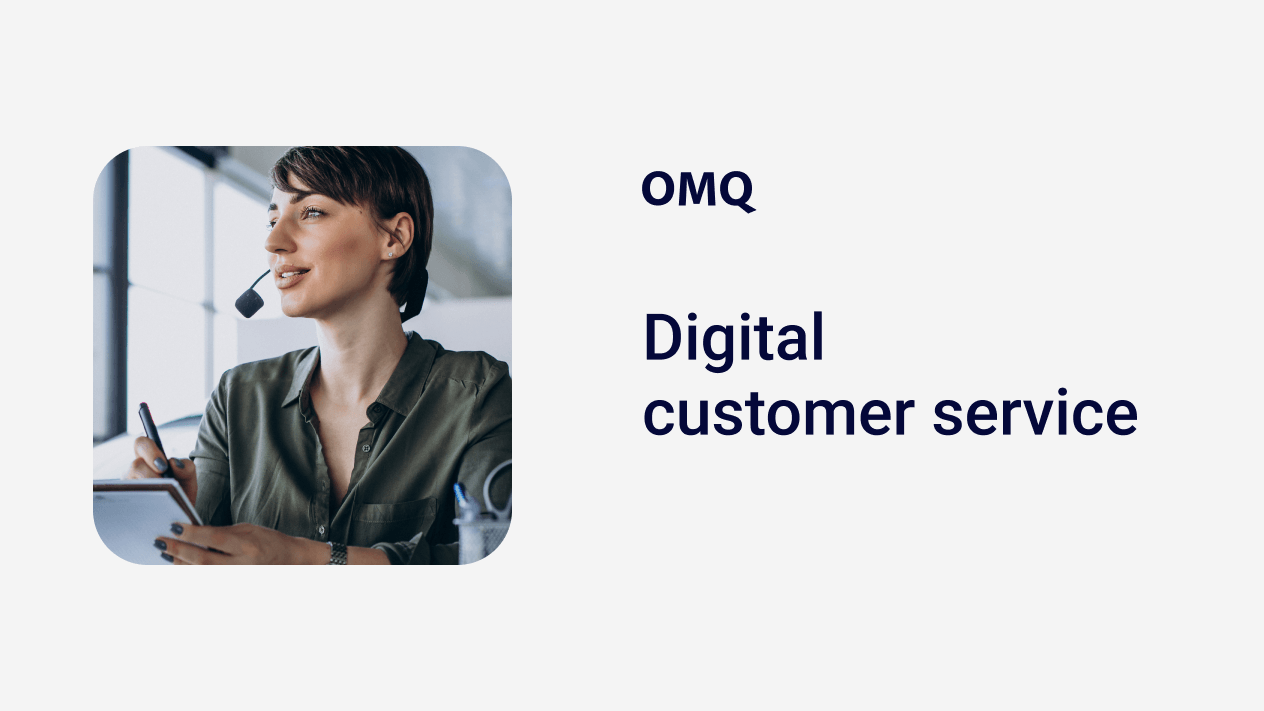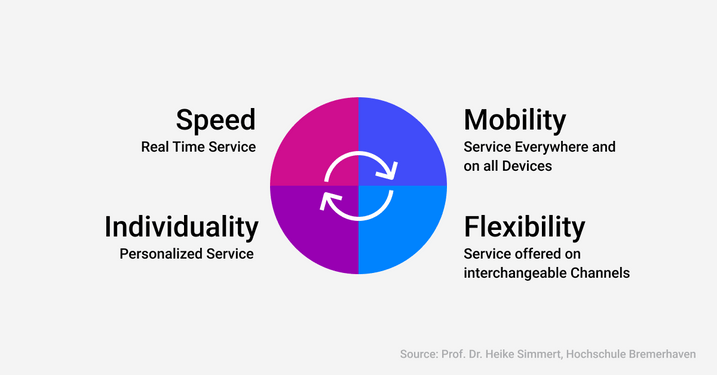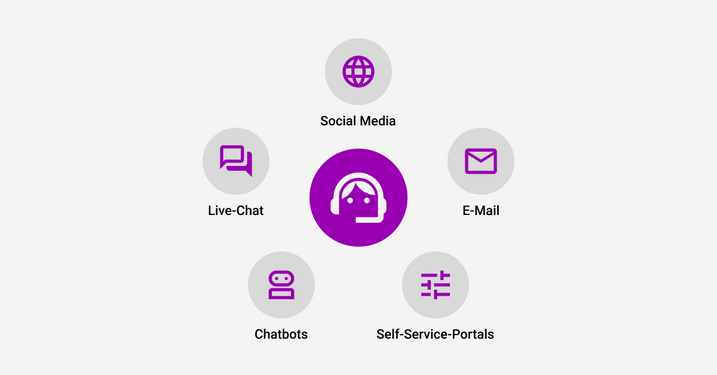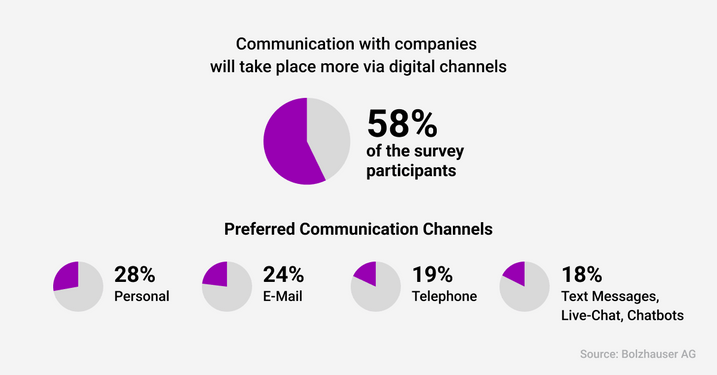Customer Service
Digital Customer Service: The Future of Customer Interaction
Discover the transformative role of digital customer service and how it is changing the way businesses interact with their customers.

In today’s digital era, the way businesses communicate with their customers has changed dramatically. Digital customer service has become an essential component of every successful business strategy. It enables companies to respond to customer needs more efficiently and effectively, replacing traditional communication methods with innovative digital solutions.
What is Digital Customer Service?
Digital customer service refers to all interactions between a business and its customers that occur through digital channels. These include emails, social media, live chats, mobile apps, and more. This form of customer service offers numerous advantages over traditional methods, allowing companies to respond quickly, create personalized experiences, and be available 24/7.
The Importance of Digital Customer Service
The importance of digital customer service cannot be overstated. In a time when consumers are becoming more demanding and expecting immediate responses, it is crucial for companies to respond to inquiries quickly and efficiently. Well-implemented digital customer service can not only increase customer satisfaction but also boost brand loyalty and ultimately drive revenue.
Customer Expectations for Digital Customer Service
Customer expectations for digital customer service have risen significantly in recent years. In an increasingly connected world, consumers expect businesses to address their needs promptly, efficiently, and personally. Here are some of the key expectations customers have for digital customer service:

Customers’ most important expectations of the service.
1. Quick Response Times
Customers today expect rapid responses to their inquiries. Long wait times are no longer acceptable, as most people are accustomed to instant information online. Companies must ensure they have the necessary resources and technology to handle inquiries promptly.
2. 24/7 Availability
In the modern business world, being available around the clock is essential. Customers want to resolve their issues at any time, regardless of business hours. Digital channels like chatbots and automated email responses can help meet this expectation.
3. Personalized Interactions
Customers appreciate personalized experiences tailored to their unique needs and preferences. They expect companies to use data to offer customized solutions and remember past interactions. This requires advanced CRM systems and data analytics.
4. Multi-Channel Communication
Consumers want to communicate across different channels—whether via email, live chat, social media, or mobile apps. They expect a seamless experience across all platforms without needing to repeat information or switch communication methods.
5. Self-Service Options
Many customers prefer solving issues on their own without speaking to a service representative. They expect extensive self-service options, such as FAQs, knowledge bases, and interactive tutorials on company websites.
6. Transparency and Clarity
Customers want clear and transparent information about products or services, as well as updates on their inquiries or orders. Unclear or misleading communication can significantly undermine trust in a company.
7. Empathy and Understanding
Despite the digital approach, customers still expect a human touch in their interactions with businesses. Empathy and understanding from service representatives are essential for a positive customer experience, especially when dealing with more complex issues or complaints.
8. Security and Data Privacy
With growing sensitivity to data privacy issues, customers highly value the secure handling of their personal data. Companies must implement robust security measures and be transparent about how customer data is used.
In summary, customer expectations for digital customer service are high and will continue to grow. Companies must continually invest in technology and adapt their strategies to meet these demands and remain competitive. By meeting or even exceeding these expectations, companies can increase satisfaction and build lasting customer relationships.
Benefits of Digital Customer Service
Digital customer service offers numerous benefits that are advantageous for both businesses and customers. Here are some of the most important benefits:
1. 24/7 Availability
One of the most obvious benefits of digital customer service is the ability to be available around the clock. Unlike traditional methods, which are often limited to business hours, digital channels like email, live chat, and social media can be used at any time. This allows customers to address their concerns at their convenience, without depending on the hours of a physical location.
2. Faster Response Times
With digital technology, companies can process inquiries more quickly. Automated systems, such as chatbots, can instantly answer simple queries, significantly reducing wait times. Digital customer service also enables staff to handle multiple inquiries simultaneously, further improving efficiency.
3. Cost Efficiency
Digital customer service can be more cost-effective than traditional methods. With automation tools and self-service options, companies can reduce staffing costs while still maintaining high service quality. Additionally, there are no costs for physical infrastructure, like call centers or branches.
4. Personalized Customer Experiences
Digital tools allow companies to collect and analyze valuable data on customer behavior and preferences. This information enables them to provide tailored experiences that meet each customer’s individual needs, resulting in higher satisfaction and stronger customer loyalty.
5. Increased Reach
Digital channels offer companies the opportunity to reach a broader audience than traditional methods. Through social media and other online platforms, businesses can engage with customers worldwide, which is particularly advantageous for international brands.
6. Improved Customer Satisfaction
With fast and efficient service and personalized interactions, customer satisfaction increases significantly. Satisfied customers are more likely to remain loyal to the company and recommend it to others.
7. Flexibility and Adaptability
Digital customer service allows businesses to respond quickly to changes in the market or customer behavior. New technologies or communication channels can be easily integrated to meet evolving demands.
Overall, digital customer service offers numerous advantages that can improve the customer experience while also increasing operational efficiencies. Through the strategic use of these technologies, companies can not only boost competitiveness but also build long-term relationships with their customers.
Channels for Digital Customer Service
There are numerous channels through which digital customer service can be offered:
- Email: Although slower in response time, email remains a preferred channel for detailed inquiries.
- Live Chat: Provides real-time communication and allows staff to handle multiple conversations simultaneously.
- Social Media: Platforms like Facebook and Twitter are ideal for direct engagement with customers.
- Mobile Apps: Increasingly, businesses use mobile apps as platforms for customer support.

Digital Customer Service Channels
The Role of Technology in Digital Customer Service
Technology plays a crucial role in digital customer service. Modern tools not only allow companies to respond to inquiries more efficiently but also provide valuable insights into customer behavior. Through data analysis, businesses can identify trends and adjust their strategies accordingly. Moreover, AI-driven solutions like chatbots enable personalized support around the clock.

Service survey shows that many respondents believe that digital customer service channels are the future.
Conclusion
Digital customer service is not just a passing trend—it is a critical element of modern business strategies. By investing in advanced technologies, companies can enhance efficiency and foster long-term relationships with their customers. In a world where consumers are increasingly demanding, it is essential for companies to be able to respond quickly and efficiently to inquiries to stay competitive.
The transition to digital service presents both opportunities and challenges, but companies that are ready to embrace it will undoubtedly benefit from the advantages that this new era of customer service offers.


